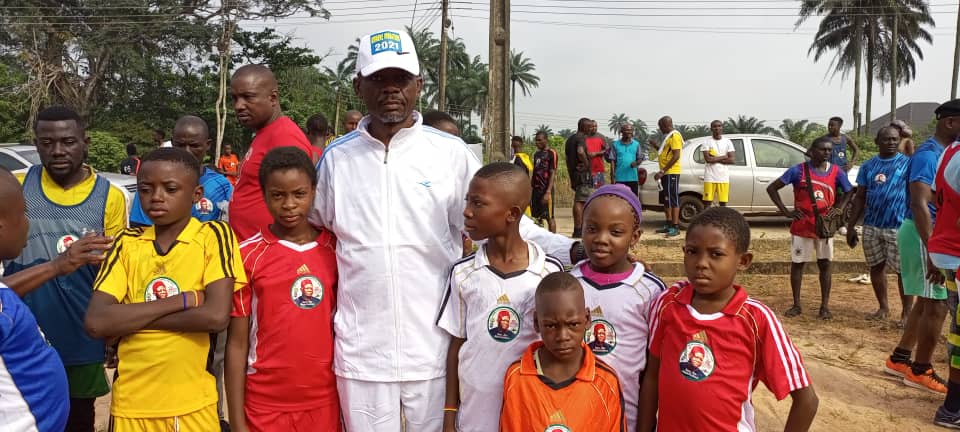Our Amaeke!
The Land of Resilience, Resourcefulness and PurposeEnyi, a traditional military general led one of the expeditions from NRI that has come to be known as the famous “Isu Movement”. Enyi’s father was called “lmenyi. Assisted by his younger brother “Obiangwu”, Enyi sacked the “Onuku”, a human stock that inhabited the area known today as lsuikwuato, Umu-lmenyi and their environs. Enyi had named his first son after his own father.
Subsequently lmenyi shared the territory to his sons – Ahaba, Ovim, Ezere and Akoli. “Ovum” which is the real name of Ovim moved and lived at a spot called Ama-Ovum” the site of the present Ovim Civic Centre in Ovim.
Here “Ovum” built a hall for his war goddess “Ogudu” which he received from his father Enyi – ’Obi Ogudu”. From his two wives Eke and Uzi, Ovum had five sons – Ohoroho, Amune, Amaeke from the first wife, Eke, while Ohonja and Obayi came from the second wife, Uzi. Ovum shared his property in that order to his five sons. Amaeke is surrounded by the rest other sons of Ovum. On the North of Arnaeke is Ohoroho. On the south is Obayi. On the West is Ohonja while on the East is Amiyi, one of the sons of Ahaba.
The topography of Amaeke is a very fascinating scenery to tourists. lt is on the hills forming an extension of Udi/Okigwe encampment. The valleys through which the numerous streams supply water to the towns grow the palm forests which give shelter to the inhabitants of the towns. The main occupation of Amaeke people is farming. Yams, Cassavas, Cocoyams are their main crops. They also engage in trading in food crops and on the products of their palm plantations, watered by their numerous streams.
Amaeke has three families – Amaeke Elu, Amauzu and Umudinja. Amaeke is gifted with an overwhelming expanse of lands outlying each of the villages. One of the villages, Amauzu, is so vast that it extends to Eze-Ukwu which is in Bende Local Government Area.

The community stands on about 300 square kilometers.
Amaeke Autonomous Community has a population of over 50,000 people both at home and abroad. lt is for the citizens to know themselves that home coming of Amaeke sons and daughters has become customary during the new year festive seasons such in December every year.
The fertility of the land in Amaeke has made farming a must. This has resulted in the production of all types of foods crops. Garri production, from the large expanse of cassava plantations in her farms, has created jobs for the teaming population of the unemployed youth. The export of the products to all parts of the country is a thing of joy. Amaeke is rich in palm produce. All types of crops grow very well in Amaeke. No wonder the boom in the famous Oriendu market – one of the many markets where Amaeke people sell their farm produce. Numerous Beacons mounted by many oil prospecting companies along our farms are indications of the possibilities of oil reserves in the lands of Amaeke.
The harvest season in Amaeke is a time for the display of our rich culture. Amaeke people have not allowed the craze for western culture to affect our rich social activities. Our famous Oba dance, Ekwo Mgba, Oso-ekpo, Nwaogboego dance and Ajonkwu masquerade festival are things one must try to see.
Amaeke towns are already enjoying facilities such as electricity with transformers in strategie position, in addition to the natural streams in many corners of the town as a result of the numerous valleys . There are many bore holes which help to supply clean water for drinking . Mobile telephone services have been extended to towns within the community. The roads are motor able with the major ones tarred. The distance from the town of Amaeke to the Railway Station in Ovim is not a hindrance as transportation is made easy by taxi and motorcycles. Meetings are held in town-halls and public buildings in Amaeke Community.
Right from the beginning of time, Amaeke people had their system of Govemment which is just like the three tier system of Govemment – the compound-Umunna, the Village-Ama, the town – Amaeke. On our own we have laws, and these laws are enferced by a task force — “Oje-ngwa”. The hunters serve as the local soldiers. They protect the farmers and the entire community against hostile neighbors. The traditional council or council of elders drawn from each “Ama” works in close cooperation with the Eze – Eke Ukwu of Amaeke Autonomous Community. The town union, Amaeke Welfare Association (AWA), is also a key arm of the governance and is strategically responsible for coordinating developmental activities in the community.
